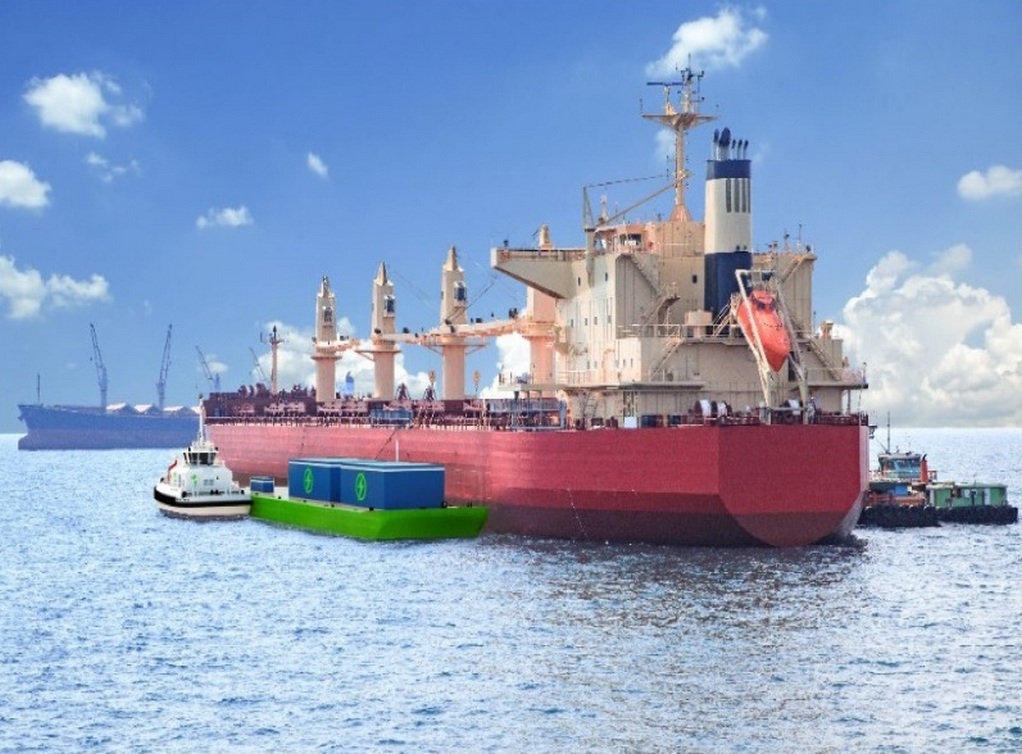Seattle-headquartered Elliott Bay Design Group (EBDG) has designed a harbour power and charging barge that offers ports and harbours and a cost-conscious and high-performing option to minimize emissions from large vessels both pier side and at anchor.
Delivering 7 megawatts (MW) of continuous power generated by methanol, the floating mobile platform is designed to be capable of cold ironing even the most demanding vessels both at the pier and at anchor for up to two weeks before refuelling.
In addition, the power barge can do double duty as an “in-field” DC charging station for electric harbour tugs and other smaller service vessels. An independent ultra-low emission and nearly silent 1 megawatt system with 10 megawatt-hours (MWh) of reserve capacity continuously replenishes its reserve to provide fast charging capacity on-demand directly in the operating field of the vessels it serves. There’s no need for vessels to spend time and waste energy running to and from the dock, and no need for pier side charging infrastructure.
The power barge is equipped with a Wärtsilä W32M Tier IV methanol generator for cold ironing and features e1 Marine’s M30 hydrogen reformer technology coupled with PowerCell’s PS-185 Fuel Cell system for fast charging. EBDG says this unique combination of commercially available technologies offers exhaust emission reductions of over 70% compared with conventional diesel at equivalent power. Zero full cycle emission is also achievable with an optional Wärtsilä carbon capture system and certified green methanol fuel.
The technology is integrated into a barge platform less than 225 feet in length. Double hull protection of the methanol storage tanks, T1(b) classification by Lloyd’s Register and MARPOL 21.1.2 compliance, further optimize its safety and environmental benefits.
Tags: Charging Barge, EBDG, Harbour, Methanol



Recent Posts
Port of Brisbane Unveils Vision 2060 to Drive Smarter, Cleaner, and More Connected Future
Wärtsilä to Deliver Hybrid Propulsion Systems for Vertom Group’s New Low-Emission Vessels
Latvian port receives electric Konecranes Gottwald Mobile Harbor Crane
Sustainable Ocean Economy Vital for Human Development, Says UNDP at UN Ocean Conference
Green Hydrogen Costs in India Could Drop by 40%, Says IEEFA-JMK Report
Cavotec Secures €1.55 Million Shore Power Contract for Port of Antwerp-Bruges
APM Terminals and SANY Marine sign landmark agreement to accelerate decarbonisation
The Port of Gothenburg takes big step towards shore power connection for container and car/RoRo vessels